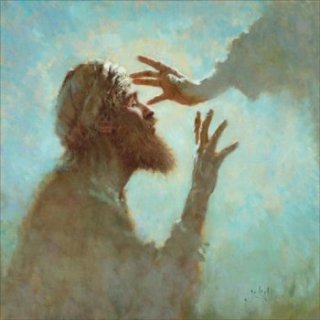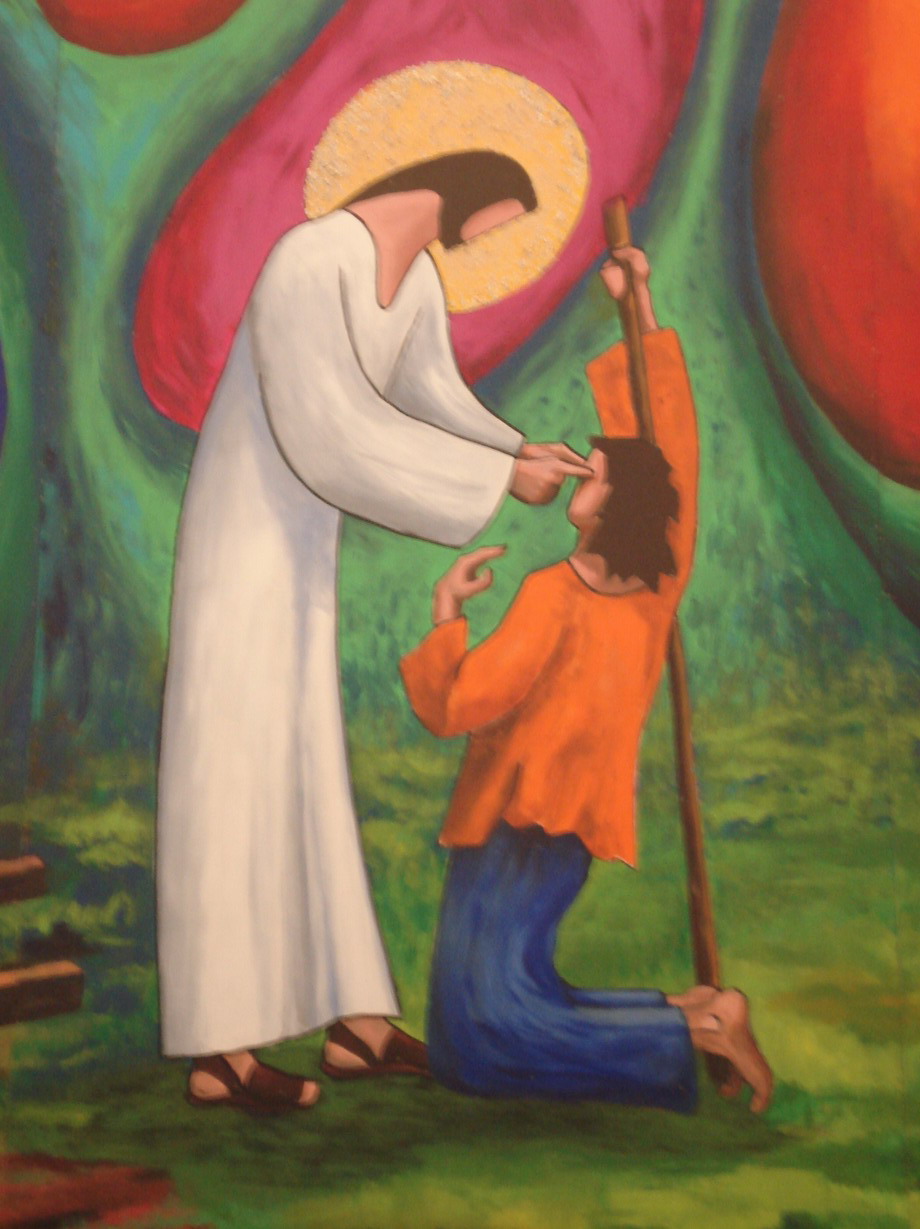Then they came to
Jericho. And as He was leaving Jericho with His disciples and a large crowd, a
blind beggar named Bartimaeus, the son of Timaeus, was sitting by the road.
When he heard that it was Jesus the Nazarene, he began to cry out and say,
"Jesus, Son of David, have mercy on me!" Many were sternly telling
him to be quiet, but he kept crying out all the more, "Son of David, have
mercy on me!" And Jesus stopped and said, "Call him here." So
they called the blind man, saying to him, "Take courage, stand up! He is
calling for you." Throwing aside his cloak, he jumped up and came to
Jesus. And answering him, Jesus said, "What do you want me to do for
you?" And the blind man said to Him, "Rabboni, I want to regain my
sight!" And Jesus said to him, "Go; your faith has made you
well." Immediately he regained his sight and began following Him on the
road.
Jesus now enters into Jericho. This is in the land of
Judea, and Jesus is getting close to Jerusalem, although he is not going a
direct route, but he went first to the east of Jerusalem.
Bartimaeus’ full name is given, so he is
probably known to disciples after the death of Jesus. The blind man calls out to Jesus as the “Son
of David”, or the Messiah—this title is used again later (Mark 12:35). So he understands Jesus to be the Messiah and
is pleading for mercy from this king.
He
was yelling loudly and incessantly—frankly, he was making a scene. People told him to be quiet, to not make a
scene, but since he was not getting the Messiah’s attention, he kept on,
ignoring those trying to quiet him. Rather than assuming what he wanted, Jesus
asked him. The blind man wanted to be
healed, and Jesus obliged him. The term
“Rabboni” is Aramaic for “rabbi”, which means “master” or “lord” and is often
used for teachers.
Jesus declares that
his faith has made him well. Bartimaeus
showed faith in a number of ways: a. He called Jesus the Messiah, b. he
persisted in crying out for salvation, even when others told him to be quiet
and c. he insisted that Jesus had authority over his blindness. After his healing, he remained with Jesus,
following him as a disciple—which no other one healed does in Mark (although
the demoniac in Mark 6 asks to).
Different people reacted different way in relation to Jesus, even when the reaction was positive. Niccodemus believed that there was something special about Jesus, but he couldn't put his finger on it. Others, like the woman at the well, boldly proclaimed who Jesus was. Some were healed by Jesus, but didn't really want to have anything to do with him (nine lepers). Others followed Jesus without really understanding him. Then there is the rare person like Bartimeus who immediately followed Jesus after his healing.
Jesus talked to them all, encouraged them all to go deeper in their faith. Jesus understood that faith wasn't a one time act, but a process that many would take their whole lives to work out. He was patient with them all, and didn't expect more out of them then they could give. He rebuked when necessary, sometimes gently, sometimes firmly. But Jesus never gave up on any, except those who rejected him without trying to understand.
Often we reject people because they aren't on our level of faith. We think they are incomplete in their faith, and they couldn't possibly be pleasing to God. Well, they don't have their whole faith. Neither do we. If we looked at our younger self in faith, we might condemn that person as well. But God didn't and doesn't. He knows that faith is a path, and we are all in the middle of walking on it.



No comments:
Post a Comment